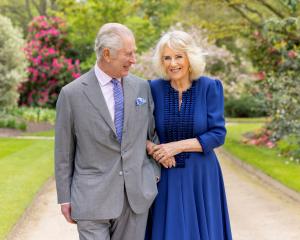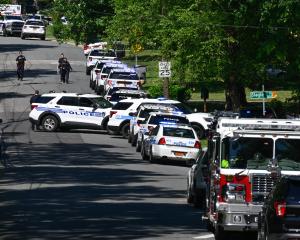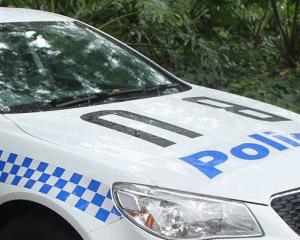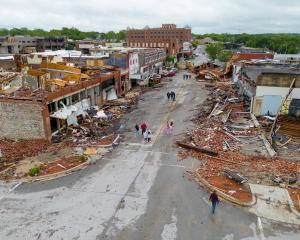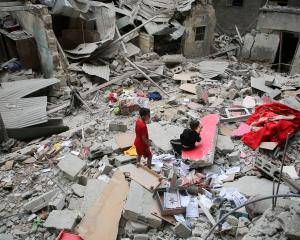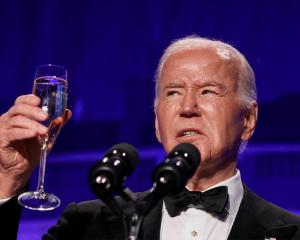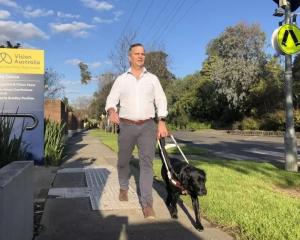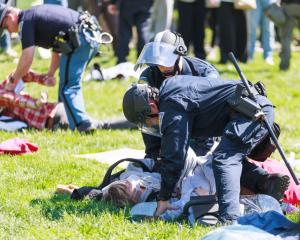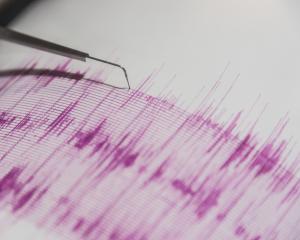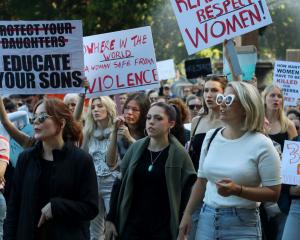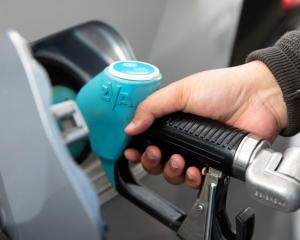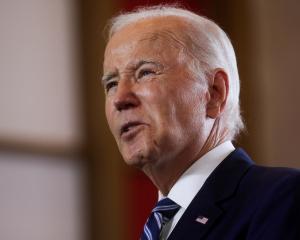The day after Venezuela's election board declared acting President Nicolas Maduro winner of the presidential vote by a tight margin, Capriles insisted the opposition's own count showed he was the victor.
"We think we won the election. The other side thinks they won and we're both within our rights," Capriles, a 40-year-old state governor, said in a televised news conference.
"All we're asking is that our rights be respected, that the will of the people be respected, and that every single vote be counted, every little piece of paper, that paper isn't for recycling, it's proof."
The request appeared to fall on deaf ears.
Shortly after Capriles spoke, senior ruling party official Dario Vivas told Reuters the proclamation ceremony would go ahead and accused Capriles of trying to "destabilize" the country.
Conscious of Venezuela's long history of turbulent protests, Capriles urged his supporters to resist temptations to resort to violence. He called for Venezuelans to bang pots and pans in protest on Monday night if Maduro is formally proclaimed winner.
If the stalemate continues, Capriles asked his followers to gather in protest on Tuesday in front of election board offices around the nation. If there is still no sign of a recount by Wednesday, Capriles pledged to lead a peaceful march through the streets of Caracas to the election board's headquarters.
UNCERTAIN FUTURE
The controversy around Venezuela's first presidential election without Chavez on the ballot in two decades ushered in new uncertainty in the oil-rich country.
It also raised doubts about the future of "Chavismo," Chavez's self-proclaimed socialist movement, without its charismatic founder, who died from cancer on March 5.
Before dying, Chavez named his longtime protege Maduro as his preferred successor, giving the former bus driver a huge boost heading into Sunday's election.
But the endorsement was not enough to ensure an easy victory for Maduro, who edged out Capriles with 50.7 percent of the votes, according to election board returns.
Capriles took 49.1 percent, just 235,000 fewer votes, according to the official count. Opposition sources told Reuters their count showed Capriles won by more than 300,000 votes.
A sense of normalcy reigned in Caracas on Monday despite the election tensions, with businesses open and traffic flowing, although there were some isolated protests.
About 200 pro-opposition students protested in an upscale district, trying to enter a hotel where unofficial foreign election observers were meeting. Outside the opposition's campaign headquarters, some protesters shouted "No more fraud."
Maduro, 50, said he would accept a full recount, even as he insisted his victory was clean and dedicated it to Chavez. Senior government officials, on state television and Twitter, ridiculed the opposition as sore losers and praised Venezuela's election system as foolproof.
"It's impossible to manipulate the election result," Jorge Rodriguez, Maduro's campaign chief, said on state TV.
The U.S. government backed the call for a full audit of the results and the Organization of American States offered to send election auditors to help. Chavista allies such as Russia and Cuba, which receives generous aid and subsidized oil from Venezuela, immediately congratulated Maduro.
Venezuela's election board is no stranger to controversy. Over the years, the opposition has repeatedly accused it of turning a blind eye to the blatant use of state resources in favor of pro-Chavez candidates. Critics say four of its five members are openly pro-government.
"The next few hours are critical," Pedro Benitez, a senior member of the opposition coalition, told Reuters. "The opposition has to get access to the ballot boxes, which are under custody of the (military)."
A similar situation gripped Mexico in 2006, when a leftist opposition candidate alleged fraud after losing a tight presidential race to Felipe Calderon. A partial recount followed and Calderon's victory was upheld.

